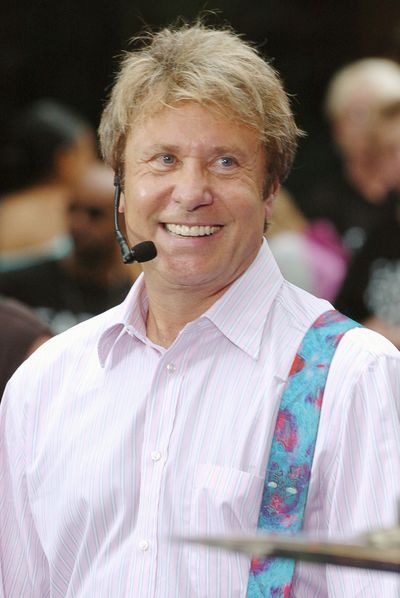Cetera lends voice to SuperPops opener

Peter Cetera likes to make a joke at the beginning of his concerts.
“I think you’re going to put two-and-two together tonight,” he tells the audience. “You’re going to realize that I’m the guy who’s with you in the elevator, in the supermarket and in the dentist’s chair.”
Or to put it another way, you may not know Cetera’s face – but you know his voice.
From 1968 through 1986, Cetera was one of the lead singers and songwriters for Chicago. Since then, he’s been a solo act with a string of Top 10 hits.
On Saturday, he brings his lengthy list of hits to the Spokane Symphony’s opening SuperPops concert of the season at the INB Performing Arts Center. He’ll perform with his own acoustic quartet and also will be backed by the orchestra, under the direction of Resident Conductor Morihiko Nakahara.
During a phone interview from Nashville, he ran down a list of the songs that have made a difference in his long career.
“ ‘If You Leave Me Now’ (1976) was a song I wrote and I think it was the first No. 1 hit for Chicago,” said Cetera. “That was important at the time.
“Then there was ‘Hard to Say I’m Sorry’ (1982, another No. 1), ‘You’re the Inspiration’ (1984), ‘Along Comes a Woman’ (1985), ‘Stay the Night’ (1984) – those songs were all big for Chicago. We were like in a comeback and those put us back on the map.”
And that doesn’t even count the many other Cetera-sung hits for Chicago, which include “25 or 6 to 4” (1970), “Wishing You Were Here” (1974) and “Baby, What a Big Surprise” (1977).
Nor does it include the songs that helped make Cetera’s solo career so successful. “Glory of Love,” the 1986 theme song to “Karate Kid II,” was his first solo No. 1 hit, followed immediately that same year by “The Next Time I Fall,” his first duet No. 1 hit, with Amy Grant.
Cetera doesn’t exactly lead the rock star life these days. He lives year-round in Ketchum, Idaho, except when recording or rehearsing in Nashville. Most of his concerts are with symphonies like Spokane’s – or, sometimes, with string quartets.
Yet he lived right through the middle of the classic rock era in the 1960s and 1970s, and has a store of anecdotes.
When Chicago first played the Fillmore West, part of the contract with promoter Bill Graham was that Graham had the right to reschedule the show on a date of his choosing. Meanwhile, Chicago had been booked to play Woodstock.
Graham exercised his option and booked them into the Fillmore on those Woodstock dates – which allowed Santana, which Graham managed, to take their spot at the now-famous festival.
“We were sort of peeved at him for pulling that one,” said Cetera.
Then there was the time in 1969 when he and some of his bandmates were in L.A. attending a Dodgers-Cubs game. Cetera ran into a group of Marines from Camp Pendleton who took a dislike to him because he was (1) rooting for the Cubs and (2) a longhair.
“It was when the Vietnam War was going on and there was a void between the military and longhairs,” he said. “They got me off by myself somewhere.”
Cetera’s jaw was broken in the ensuing brawl. He had to go back out on the road with a wired-up jaw and sing through a mouth he couldn’t open wide.
It actually helped forge the singing style that made him famous.
“I still don’t sing with my mouth wide open,” Cetera said.